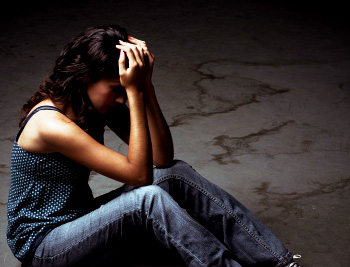With spring break in the rear-view mirror and summer fast approaching, the pressure to get in tip-top swimsuit shape is at it’s highest. Unfortunately this often leads to the development of eating disorders, especially among young women.
 It is hard to determine exactly how many young people develop eating disorders each year because most of them go undetected, but it is estimated that 10 million women and 1 million men are battling with an eating disorder right now. An eating disorder is different from going on a diet and is usually about much more than just food. A lot of young people use eating disorders as a way to cope with pain or as a mode of feeling in control of some aspect of their life.
It is hard to determine exactly how many young people develop eating disorders each year because most of them go undetected, but it is estimated that 10 million women and 1 million men are battling with an eating disorder right now. An eating disorder is different from going on a diet and is usually about much more than just food. A lot of young people use eating disorders as a way to cope with pain or as a mode of feeling in control of some aspect of their life.
The two main types of eating disorders are bulimia and anorexia. The National Eating Disorders Association (NEDA) defines these to disorders as:
Bulimia–an eating disorder characterized by a cycle of bingeing and compensatory behaviors such as self-induced vomiting designed to undo or compensate for the effects of binge eating
Anorexia–an eating disorder characterized by self-starvation and excessive weight loss
Eating disorders are very serious medical conditions and should be treated as such. There are very serious, life-threatening, and long-lasting effects that can include osteoporosis, heart failure, kidney failure, and even death.
I found some incredibly startling statistics on NEDA’s website in regards to eating disorders. They reported that more than one half of teenage girls participate in some type of harmful weight control behavior (vomiting, skipping meals, using laxatives, etc). More than half! The next one was even more disturbing to me, “42% of 1st-3rd grade girls want to be thinner.” We’re talking 6 to 9 year olds that feel that they’re not thin enough! NEDA’s website had a lot more statistics and good information, if it’s something you’re interested in I would definitely encourage you to check it out.
It is important to recognize the warning signs of an eating disorder. This website suggested that some one with an eating disorder may:
- Become very thin, frail, or emaciated
- Be obsessed with food and weight control
- Weigh herself/himself repeatedly
- Avoid certain foods (dairy, meat, wheat, etc)
- Exercise excessively
- Withdraw from social activities, especially meals and celebrations involving food
- Have a lack of energy
- Intense dissatisfaction with body size, shape, and weight
- Excuses to use the restroom immediately after meals
If you suspect that someone you might know has an eating disorder or is on the road to developing one, the best thing you can do is be supportive of healthy activities. If you are close enough to the person, having a one-on-one conversation where you address your concern can often be a very helpful first step. It is essential to remember that what they’re suffering from is a disease and it should be treated as such. Some other things that might help someone who is suffering from an eating disorder is inviting them to eat with you. Many tim es stress is a common trigger for an eating disorder, so helping your friend find a healthy, stress-reliving activity that you two can participate in is a good idea as well (e.g. yoga, meditation, going for walks, volunteering, playing music, etc.).
es stress is a common trigger for an eating disorder, so helping your friend find a healthy, stress-reliving activity that you two can participate in is a good idea as well (e.g. yoga, meditation, going for walks, volunteering, playing music, etc.).
Probably the most important thing some one with an eating disorder can do is get professional help. Unfortunately the number who receive mental health care for their disorder is very, very low (33% for anorexia, and 6% for bulimia).
Tell me what you think!
What do you think could be done to increase the number of people suffering from eating disorders who get mental health treatment?
What other suggestions do you have for dealing with friends or family who suffer from eating disorders?
What do you think cases so many young girls (and boys) to develop eating disorders?
How can we raise awareness about the severity of these diseases and the treatment options?
 My brother was your typical 19 year old kid. He thought he was the best driver, so confident in fact that he considered himself a talented texter-and-driver (although he’d always deny it to your face). One evening he was heading home from a get together and ran a red light at a busy intersection while texting and t-boned two other cars. Luckily the light must have just turned red because there were no pedistrians or other cars in the accident and everyone walked away unharmed (the cars where a whole other story).
My brother was your typical 19 year old kid. He thought he was the best driver, so confident in fact that he considered himself a talented texter-and-driver (although he’d always deny it to your face). One evening he was heading home from a get together and ran a red light at a busy intersection while texting and t-boned two other cars. Luckily the light must have just turned red because there were no pedistrians or other cars in the accident and everyone walked away unharmed (the cars where a whole other story).











